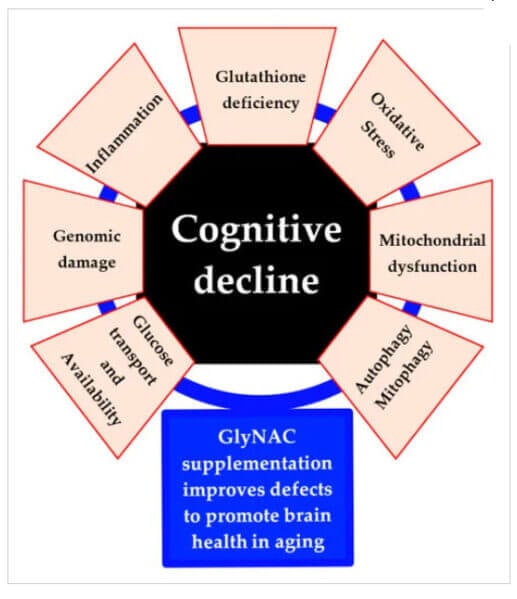Scientists at Baylor College of Medicine are delving into the biological mechanisms behind age-related cognitive decline and developing nutritional approaches to promote healthy brain aging.
Dr. Rajagopal Sekhar, a professor at Baylor, has dedicated over two decades to studying natural aging in humans and mice, shedding light on the connection between age-related cognitive decline and factors like glutathione deficiency, oxidative stress, mitochondrial dysfunction, abnormal glucose metabolism, inflammation, and reduced levels of neuron-supporting factors. One promising supplement they’ve investigated is GlyNAC, which has shown potential in reversing these cognitive defects and improving brain function.
To explore these effects directly in the aging brain, the researchers conducted a study using mice. Two groups of mice aged naturally and were evaluated for cognitive abilities compared to a group of young mice. One group of aged mice was placed on a GlyNAC-supplemented diet, while the other group continued with their regular diet. After eight weeks, the cognitive abilities of the mice were reassessed, and their brains were analyzed for specific defects associated with cognitive impairment. The results showed improvements in cognitive function and a reduction in brain abnormalities in the group supplemented with GlyNAC.
Dr. Sekhar expressed excitement about the findings, highlighting the prevalence of cognitive impairment and brain abnormalities in aging mice, such as glutathione deficiency, oxidative stress, impaired mitochondrial function, inflammation, and energy deficits. GlyNAC supplementation appeared to address these issues, providing evidence of its potential to improve brain health in aging individuals. The researchers plan to conduct a larger clinical trial to further explore the effects of GlyNAC on cognitive and brain health in older adults.
Previous studies by the Sekhar lab have demonstrated the positive impact of GlyNAC supplementation on various organs and lifespan in rodents. The promising results, along with a recently published clinical trial in older humans, indicate the potential of GlyNAC in promoting brain health and cognitive function during the aging process. The researchers also believe that their findings may have implications for conditions like Alzheimer’s disease and mild cognitive impairment, as similar defects are observed in these conditions.
While Baylor holds a patent on GlyNAC, it is important to note that the study received no financial or material support from Nestlé Health Science, which markets GlyNAC under the name CelltrientTM Cellular Protect in the United States. The research was supported by the McNair Medical Institute at the Robert and Janice McNair Foundation, and contributions were made by Premranjan Kumar and Ob Osahon from Baylor.


